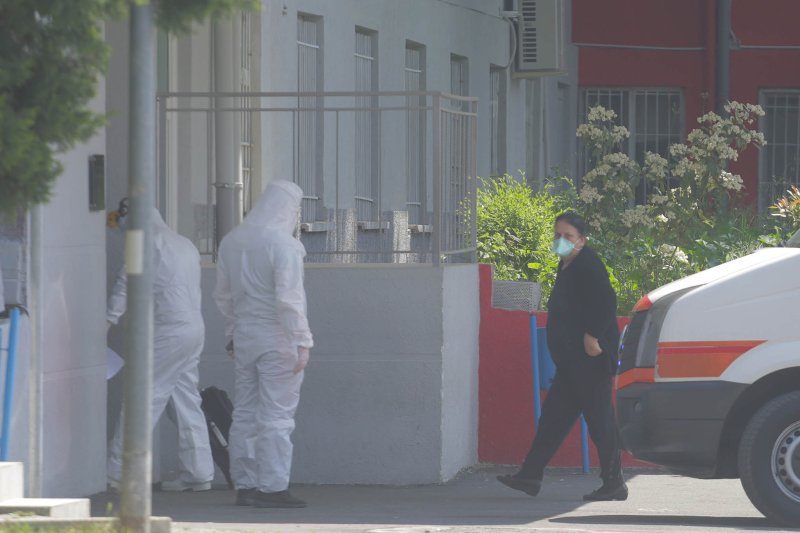First Case Of 'Omicron' Variant Confirmed In Albania
Albanian authorities said Thursday they had confirmed the first case of the Covid-19 Omicron variant. The news was announced by the chairwoman of the Committee of Experts Mira Rakacolli.
She said that the suspicion about his presence in Albania has been confirmed after the analysis carried out in Germany. So far there are two cases with Omicron identified in Albania.
Rakacolli stated that however in Albania the Delta variant continues to prevail. She stressed that based on reports, the epidemiological situation in Albania is stable in the last two weeks. Omicron is expected to be dominant on January as this strain is confirmed to be more infectious.
"As you know, Omicron has been circulating in the world for several weeks. The Committee informs that the suspicion of the specialists for the presence of Omicron in Albania has been confirmed with the answer coming from the laboratory in Germany. However, the Delta variant continues to prevail in Albania. As you are aware, the epidemiological situation in Albania is stable in the last two weeks, both in terms of new daily cases and in terms of cases that require hospital treatment," said Rakacolli.
What We Know about Omicron
CDC has been collaborating with global public health and industry partners to learn about Omicron, as we continue to monitor its course. We don’t yet know how easily it spreads, the severity of illness it causes, or how well available vaccines and medications work against it.
Spread
The Omicron variant likely will spread more easily than the original SARS-CoV-2 virus and how easily Omicron spreads compared to Delta remains unknown. CDC expects that anyone with Omicron infection can spread the virus to others, even if they are vaccinated or don’t have symptoms.
Severe Illness
More data are needed to know if Omicron infections, and especially reinfections and breakthrough infections in people who are fully vaccinated, cause more severe illness or death than infection with other variants.
Vaccines
Current vaccines are expected to protect against severe illness, hospitalizations, and deaths due to infection with the Omicron variant. However, breakthrough infections in people who are fully vaccinated are likely to occur. With other variants, like Delta, vaccines have remained effective at preventing severe illness, hospitalizations, and death. The recent emergence of Omicron further emphasizes the importance of vaccination and boosters.
Treatments
Scientists are working to determine how well existing treatments for COVID-19 work. Based on the changed genetic make-up of Omicron, some treatments are likely to remain effective while others may be less effective.
EU Countries Tighten Travel Restrictions
Not long after the European Union Member States opened their borders and started to keep more relaxed COVID-19 restrictions, many had to reimpose entry measures due to detection of the new B.1.1.529 variant, also known as Omicron.
The decision of the Member States to tighten the travel rules follows the recommendation of the European Union’s Commission. Through a statement on the new Coronavirus variant, the President of the Commission, Ursula von der Leyen, urged all EU Member States to stop travel to and from countries that have been affected by the new variant.
The World Health Organization (WHO) has disclosed that the first infection with the new variant, named Omicron, was detected on November 9.
Since the new variant has a larger number of mutations than the Delta variant and higher transmissibility, it is still unclear whether the current COVID-19 vaccines will be effective against Omicron. For this reason, every country is trying to control the movement of its citizens as well as the entry of other nationals.
It has been disclosed that the new COVID-19 variant has around 50 mutations, which is twice as many as the mutations that the Delta variant has.
Therefore, in order to prevent the further spread of the new variant and protect the public, EU countries have decided to take various approaches, which mainly consist of more stringent entry restrictions.














